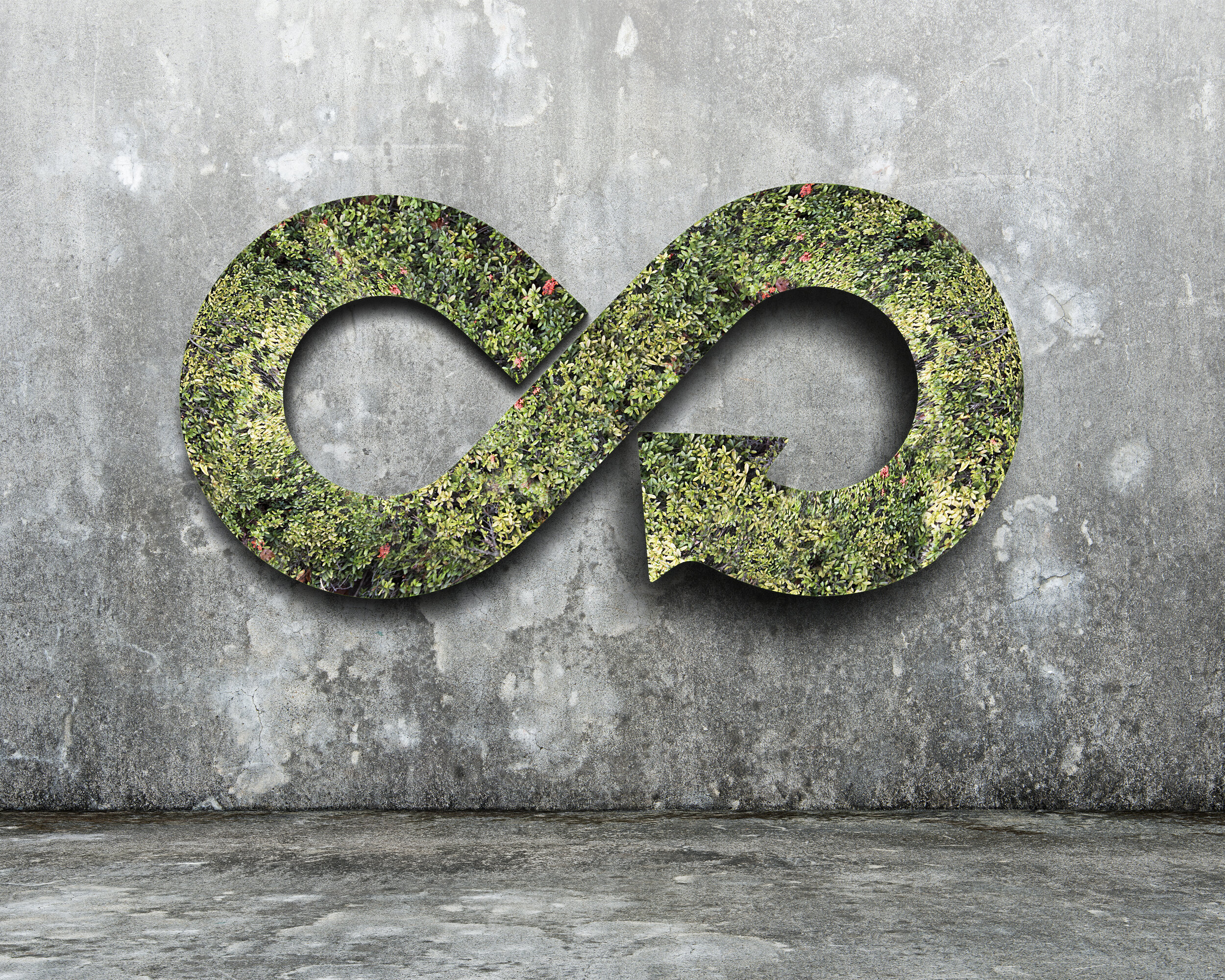
Circular Economy
What is Circular Economy?
The circular economy is a key principle of sustainability, and is based on 3 core values:
Designing out waste and pollution
Keeping products and materials in use
Regenerating natural systems
The Circular Economy concerns how products that we buy and use are designed so that they are reusable and easy to repair, thus providing greater economic value. Circular systems employ models of reuse, sharing, products-as-service, repair, refurbishment, remanufacturing and recycling to create closed-loop systems. In so doing we minimise the demand on raw resource inputs and the amount of waste, pollution and carbon emissions.
Traditionally, economies were linear, with a TAKE-MAKE-DISPOSE approach to the products we produce and purchase. We usually purchase products and use them for a short period of time before discarding them, and producers generate value via multiple purchases of similar products.
This isn’t sustainable – the CE seeks to reverse this process and make our linear economic models obsolete. It proposes a new economic model based on closed-loop systems whereby economic value is generated through keeping products and materials within circulation.
There is a move to value chains predicated upon reusing or regenerating materials. There are environmental, financial and social benefits to getting this right. Indeed, throwing materials away means we lose the value of a potential resource. In the CE, waste = resource.
The construction industry is one of the world’s largest waste generators. One way to drive the circular economy is to increase the value of buildings in both the medium and long term by designing them dynamically and flexibly to create a circular building value chain and push the shift to a circular building sector. This requires disassembling end-of-life buildings when they are no longer required and re-using the materials. The idea is to reduce the use of virgin resources and reduce construction and demolition waste in favour of re-use.
How can we help?
Mainer Associates can deliver circular economy statements to discharge planning conditions.
We have experience in formulating statements to meet planning requirements and offer bespoke circular economy expertise to our clients.
We offer a tailored service to our clients that provides project-specific advice and recommendations to ensure developments align to the circular economy’s core principles.
Mainer Associates can also offer circular economy consultancy throughout all RIBA stages to guide the design team in designing a materially efficient and adaptable building which champions key themes such as:
- Reuse of materials
- Use of recycled materials
- Disassembling
- Functionality
Mainer Associates has the ability to quantify the circularity score using our LCA software to provide designers and contractors with an indication of the inherent circularity of the development.
